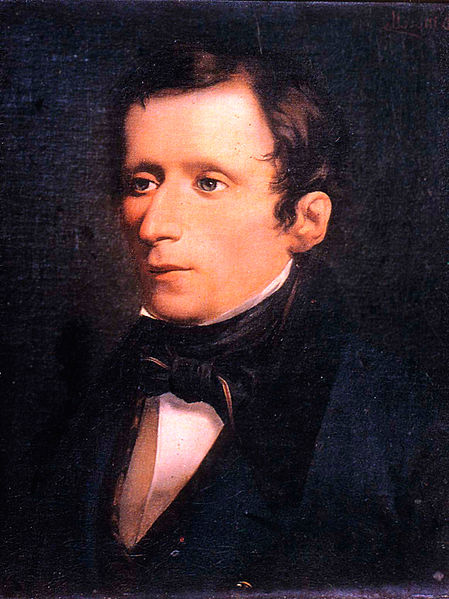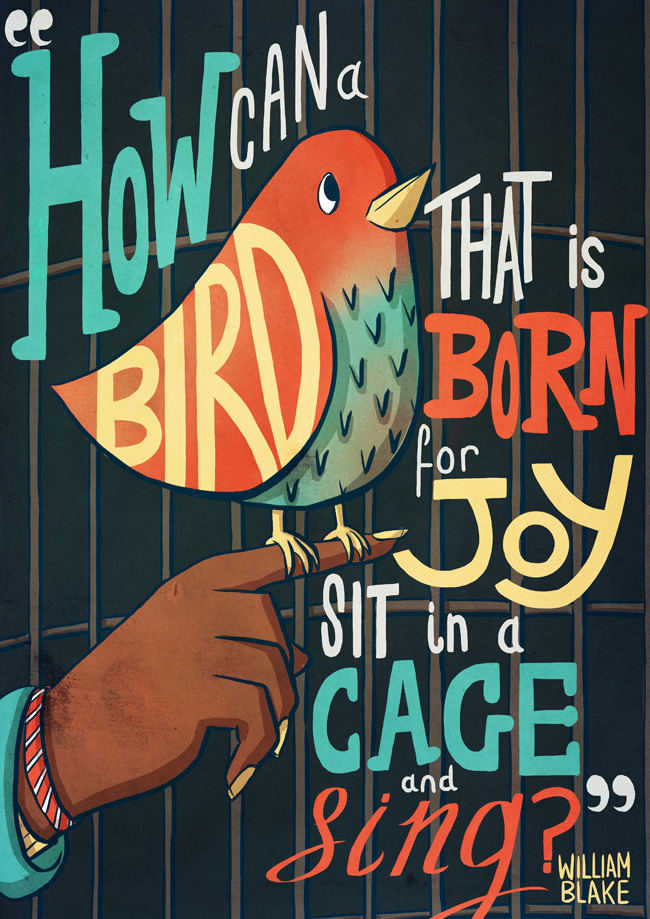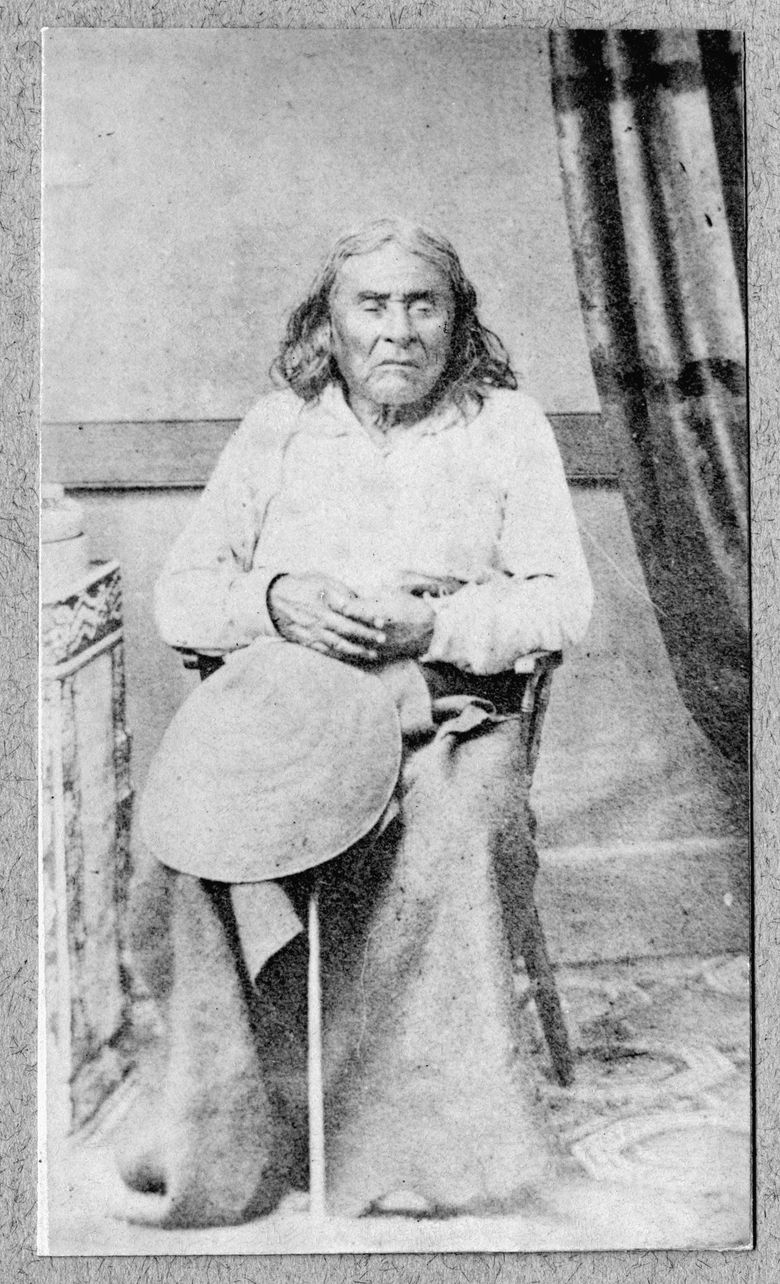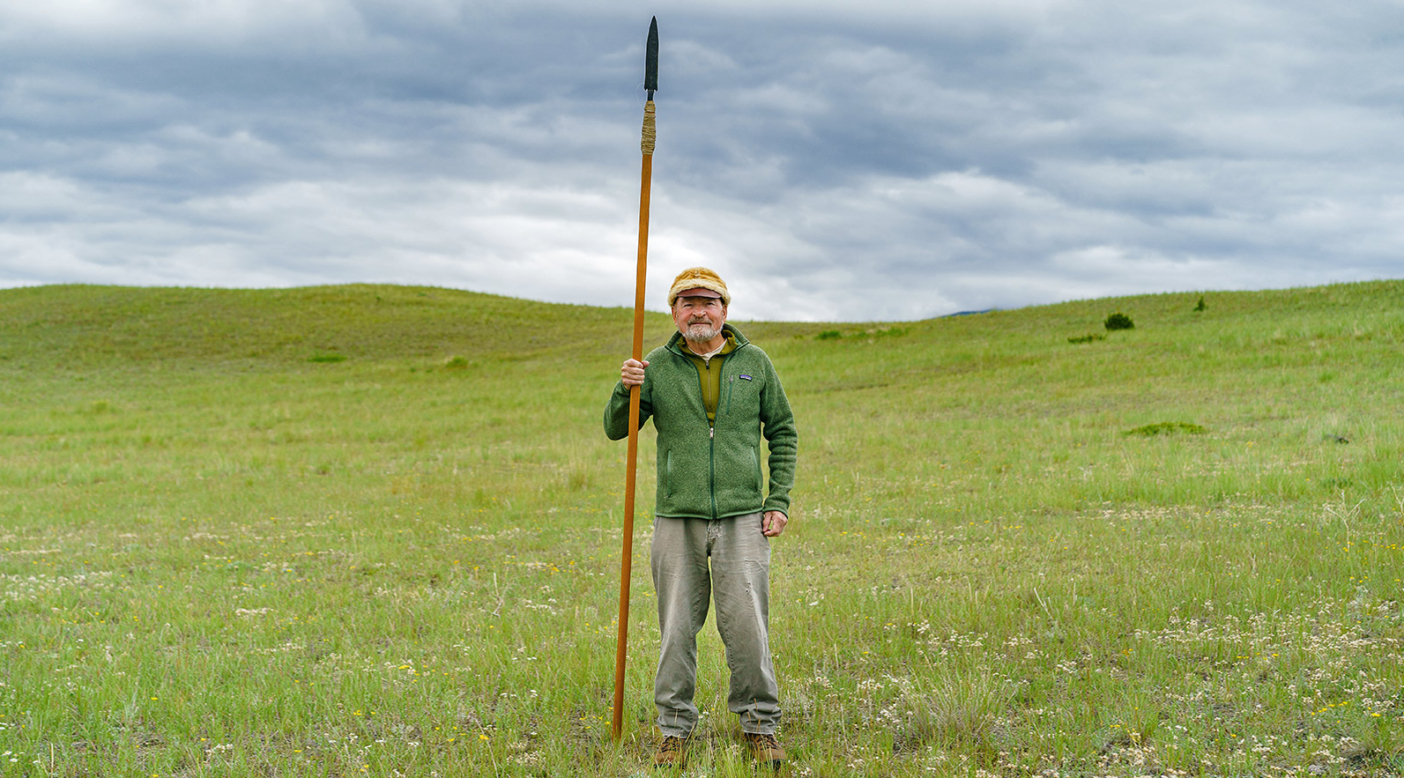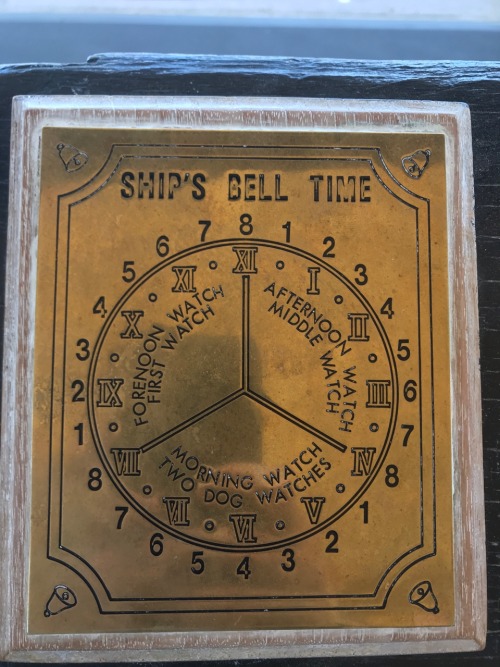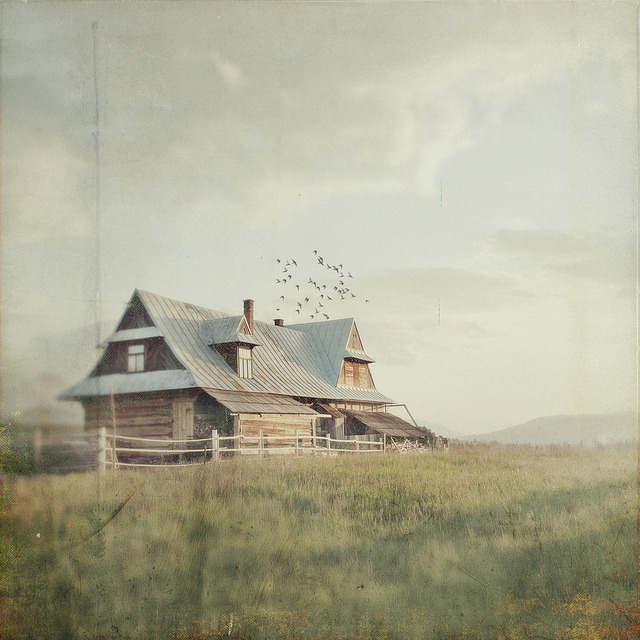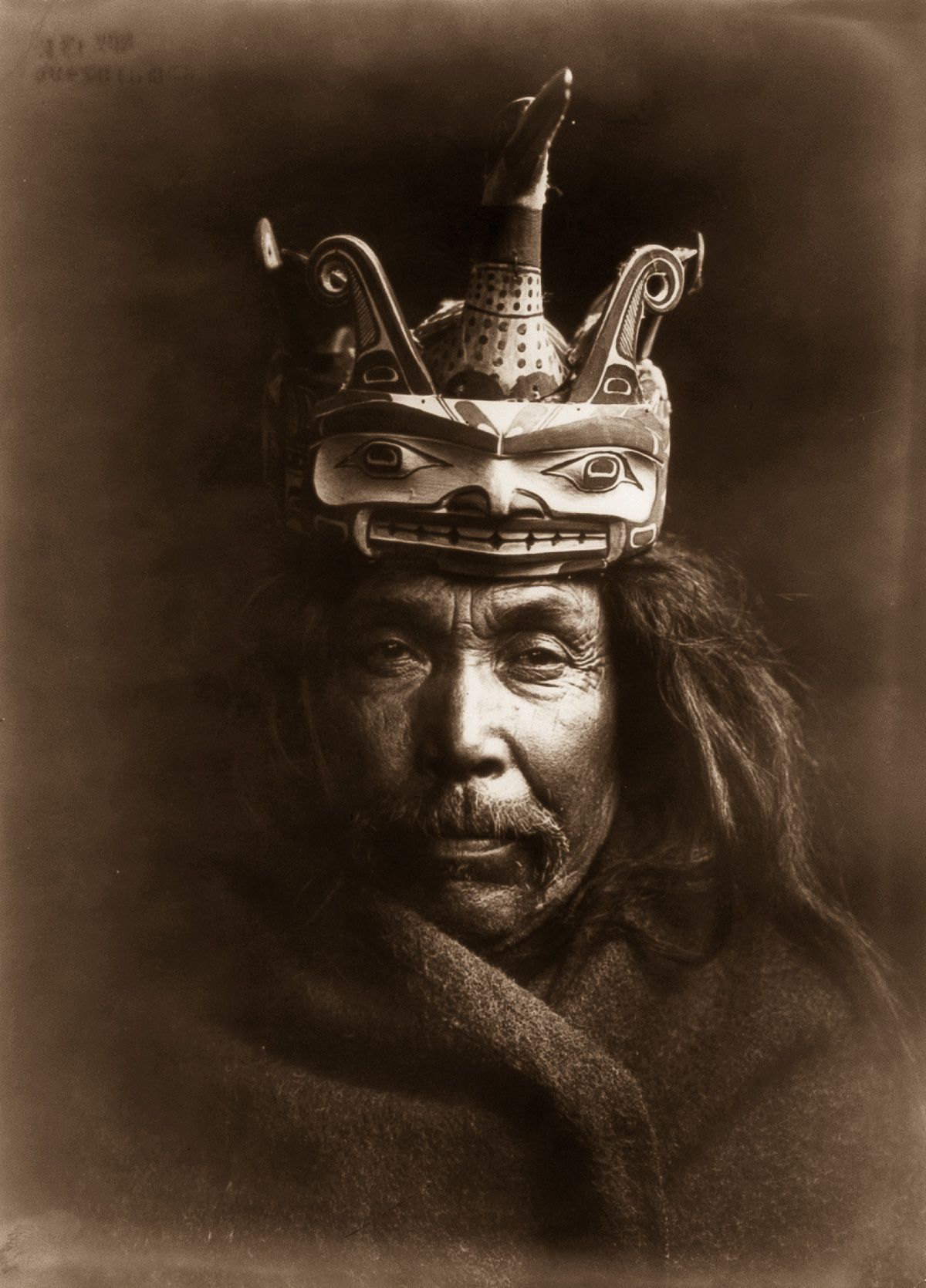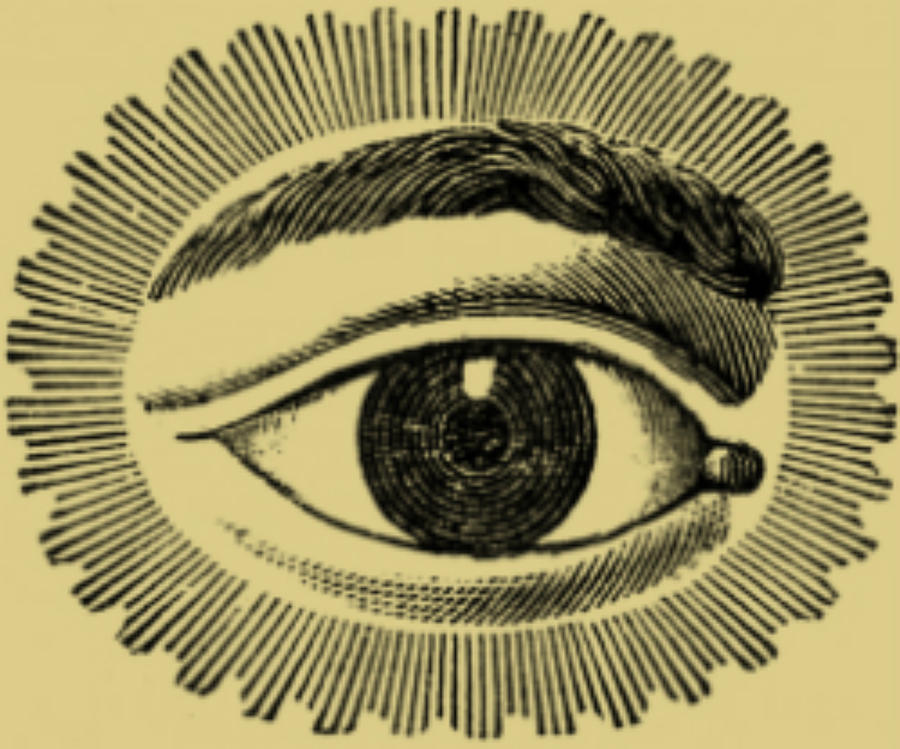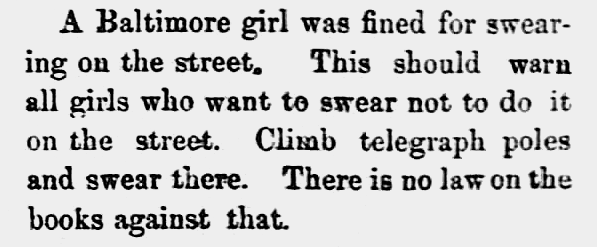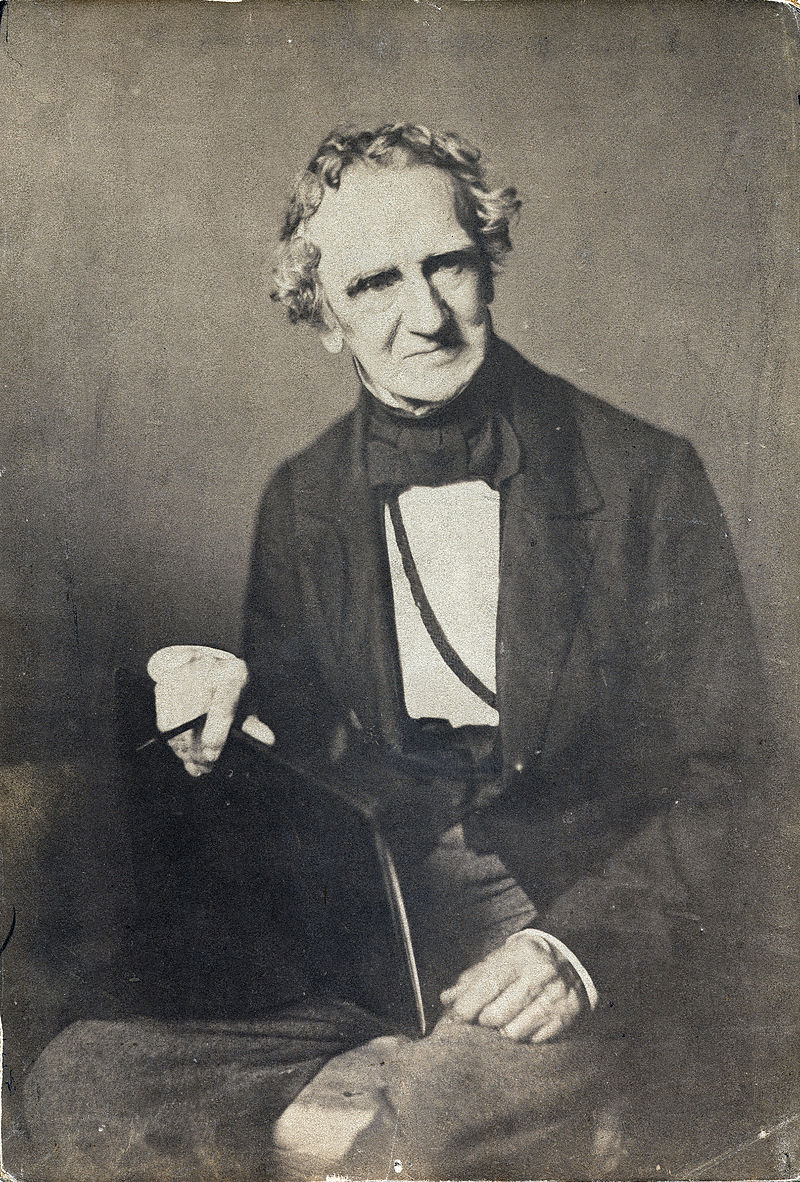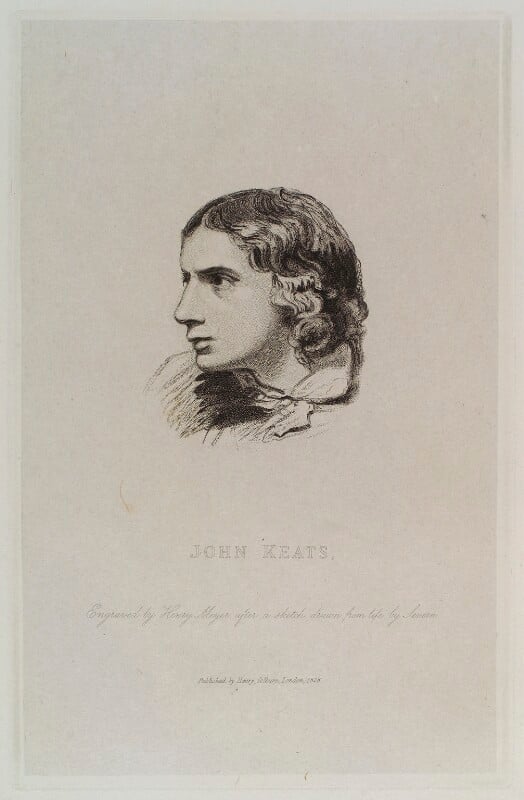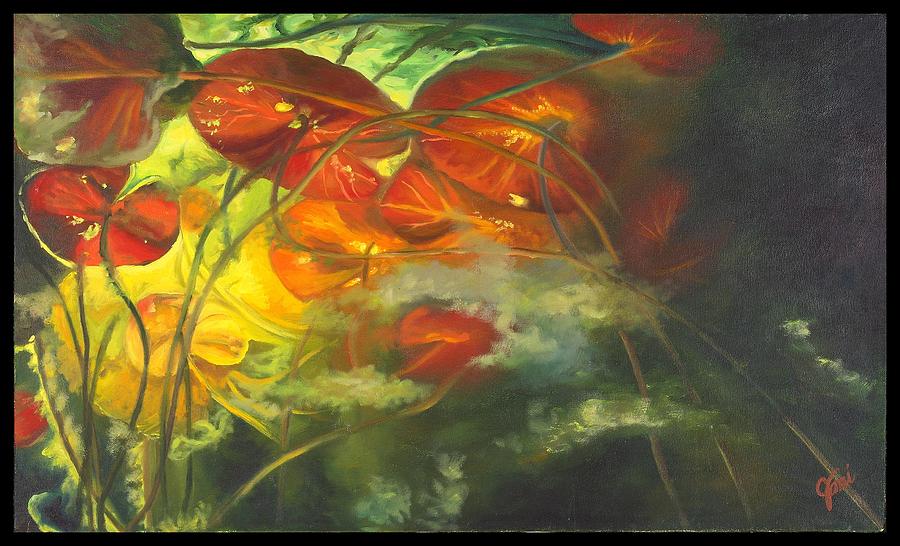30 June 2019
Handel, Tu del Ciel Ministro eletto
Julia Lezhneva performs with Il Giardino Armonico, conducted by Giovanni Antonini ...
29 June 2019
Barbados.
Rum and tonic.
Gin you say?
No, my dear. Not today.
Barbados rum and tonic, please.
Aged some years, ~80 degrees.
Over ice in a highball glass.
A nice dry tonic adds some class.
Some lime as well, but just a squeeze.
Keep them coming and hold my keys.
See.
Blake, Self-portrait, 1802
You certainly mistake, when you say that the visions of fancy are not to be found in this world. To me this world is all one continued vision of fancy or imagination, and I feel flattered when I am told so.
I am happy to find a great majority of fellow mortals who can elucidate my visions, and particularly they have been elucidated by children, who have taken a greater delight in contemplating my pictures than I even hoped. Neither youth nor childhood is folly or incapacity. Some children are fools and so are some old men. But there is a vast majority on the side of imagination or spiritual sensation.
William Blake
Happy Birthday, Leopardi
Morelli, Giacomo Leopardi, 1845
As a poet my spirit has run the same course as the human spirit generally. At the beginning, Fancy was my strength: my poems were full of images, and I read poetry to feed my own imagination. I was already intensely aware of the life of feeling but didn’t know how to express it. I hadn’t reflected enough on things, of philosophy I had only the faintest grasp, and I lived constantly with the illusion we all create, that the world and life will always make an exception for us. I’ve always experienced misfortune, but back then it seemed especially intense, and it devastated me because it seemed (not to my rational faculty but to my very active imagination) that misfortune denied me the happiness others believed they possessed. My condition was in every way that of the ancients.
It’s quite true that even then, when I felt so pressed by misfortune and trouble, I was capable of certain effects in my poetry. The complete change in me, my passage from ancient to modern, happened within about a year, in 1819, when I lost the use of my sight and couldn’t pass the time reading, I felt my unhappiness darkening terribly, and I began to give up hope, to reflect deeply on things (in one year I filled twice the space in these daybooks as I had in a year and a half, and my thoughts were all centered on our nature, unlike previous entries that were nearly all about literature), to become a professional philosopher (instead of the poet I once was), to feel the world’s inevitable unhappiness instead of just acknowledging it, and this also because of a certain physical torpor that made me less like the ancients and more like men of my time. My imagination then became much feebler, and although my faculty of invention increased enormously and finally began to function, it took form in prose or sentimental poetry. And when I did try to versify, images came only with enormous effort, my imagination was almost dried up (even apart from poetry; I mean, in contemplating Nature’s beauty, etc., I was cold as stone), even though my lines gushed with feeling. So one could say that in the strictest terms only the ancients were poets, and now the true poets are children, or the very young, and moderns who pass themselves off as poets are in fact philosophers.
Certain ideas, certain images of things, surpassingly vague, fantastical, chimerical, impossible, in poetry or in our imaginings—they bring peak pleasures, because they bring back our oldest memories, memories from childhood, when such ideas and images and beliefs were ordinary, commonplace. And the poets who most possess these (supremely poetical) visions are the ones we love most. Examine your own most poetical feelings and imaginings, those that most awe you, that take you out of yourself and the real world, and you will find that they and the pleasures they bring (at least after childhood) are mainly or wholly constructed of remembrances.
Giacomo Leopardi
Giacomo Leopardi was born on this date in 1798.
It’s quite true that even then, when I felt so pressed by misfortune and trouble, I was capable of certain effects in my poetry. The complete change in me, my passage from ancient to modern, happened within about a year, in 1819, when I lost the use of my sight and couldn’t pass the time reading, I felt my unhappiness darkening terribly, and I began to give up hope, to reflect deeply on things (in one year I filled twice the space in these daybooks as I had in a year and a half, and my thoughts were all centered on our nature, unlike previous entries that were nearly all about literature), to become a professional philosopher (instead of the poet I once was), to feel the world’s inevitable unhappiness instead of just acknowledging it, and this also because of a certain physical torpor that made me less like the ancients and more like men of my time. My imagination then became much feebler, and although my faculty of invention increased enormously and finally began to function, it took form in prose or sentimental poetry. And when I did try to versify, images came only with enormous effort, my imagination was almost dried up (even apart from poetry; I mean, in contemplating Nature’s beauty, etc., I was cold as stone), even though my lines gushed with feeling. So one could say that in the strictest terms only the ancients were poets, and now the true poets are children, or the very young, and moderns who pass themselves off as poets are in fact philosophers.
Certain ideas, certain images of things, surpassingly vague, fantastical, chimerical, impossible, in poetry or in our imaginings—they bring peak pleasures, because they bring back our oldest memories, memories from childhood, when such ideas and images and beliefs were ordinary, commonplace. And the poets who most possess these (supremely poetical) visions are the ones we love most. Examine your own most poetical feelings and imaginings, those that most awe you, that take you out of yourself and the real world, and you will find that they and the pleasures they bring (at least after childhood) are mainly or wholly constructed of remembrances.
Giacomo Leopardi
28 June 2019
Individuals.
Instead, it's mainly American and French individuals, via Notre Dame charitable foundations, that are behind the first donations paying the bills and salaries for up to 150 workers employed by the cathedral since the April 15 fire that devastated its roof and caused its masterpiece spire to collapse. This month they are handing over the first private payment for the cathedral's reconstruction of 3.6 million euros ($4 million).
CONNECT
27 June 2019
Invents.
Gary Snyder
Curse.
When I was asked in an interview about how Chief Seattle's curse haunts us, I said, "They got even with us by allowing us to invent television." Curses come in very ordinary ways. Television is their curse on us. We don't live anymore, we watch.
Jim Harrison
CONNECT
25 June 2019
Montserrat.
In Montserrat, Jools Holland's 1981 documentary on The Police during Ghost in the Machine ...
Grace.
Remaining as close to wild as possible, Peacock lives out in the big empty of Montana and has been observing, tracking, and documenting brown bears in their natural habitat for 50 years. After serving as a Green Beret medic in the Vietnam War, he returned to the States struggling with post-traumatic stress disorder, and the wilderness became his haven. “I was naïve and stupid and the bears gave me grace and tolerance. They didn’t chew my ass off which is what they should have done,” he says. “Instead, they saved my life.”
CONNECT
The trailer for Grizzly Country ...
Humility.
In grizzly country, humans are put in their proper place—you are not the dominant creature on the landscape. It’s a matter of getting yourself outside yourself. Your senses are forced outward. You see better. You smell better. It’s not yourself which is the center of the universe. It’s an enforced humility.
Doug Peacock
CONNECT
Lineage.
Curtis, Warrior's Feathered Headdress, Cowichan, 1913
These are not Methodist Indians, warriors with a lineage that owed nothing to the white man. We did not live upon the same earth that they did. And we flatter ourselves when we think we understand them. To pity these men is to pity the gods.
Jim Harrison
Stir.
I think we need not to be so pedantic and academic and strict about what we consider wilderness. It’s whatever in undisturbed nature that can stir the innate wild in men and women. Wildness lives in all of us; wilderness is whatever it takes to wake it up. And some people can get it watching birds and squirrels in their backyard, and other people are like me, they need endless hunks of tundra with big bears and jaguars, tigers, polar bears.
Doug Peacock
Momentous.
WHILE YOU SLEPT
You never knew what I saw while you slept.
We drove up a wide green stone-filled valley.
Around us were empty heather mountains.
A white river curved quickly beside us.
I thought to wake you when I saw the cairn --
A granite pillar of that country's past --
But I let you sleep without that history.
You did, however, travel through that place:
I can tell you that your eyes were at rest
As the momentous world moved beyond you,
And that you breathed in peace that quarter hour.
We seldom know what is irreplaceable.
You sang old songs for me, then fell asleep.
I worried about what you were missing.
But you missed nothing. And I was the one who slept.
Glen Coe
Again.
Collins, Fire Island, Marsh, 2003
WORLDS
Through the pale green forest of tall bracken-stalks,
Whose interwoven fronds, a jade-green sky,
Above me glimmer, infinitely high,
Towards my giant hand a beetle walks
In glistening emerald mail; and as I lie
Watching his progress through huge grassy blades
And over pebble boulders, my own world fades
And shrinks to the vision of a beetle's eye.
Within that forest world of twilight green
Ambushed with unknown perils, one endless day
I travel down the beetle-trail between
Huge glossy boles through green infinity . . .
Till flashes a glimpse of blue sea through the bracken asway,
And my world is again a tumult of windy sea.
Wilfrid Wilson Gibson
Through the pale green forest of tall bracken-stalks,
Whose interwoven fronds, a jade-green sky,
Above me glimmer, infinitely high,
Towards my giant hand a beetle walks
In glistening emerald mail; and as I lie
Watching his progress through huge grassy blades
And over pebble boulders, my own world fades
And shrinks to the vision of a beetle's eye.
Within that forest world of twilight green
Ambushed with unknown perils, one endless day
I travel down the beetle-trail between
Huge glossy boles through green infinity . . .
Till flashes a glimpse of blue sea through the bracken asway,
And my world is again a tumult of windy sea.
Wilfrid Wilson Gibson
24 June 2019
Fly.
This lost country composers do not actually remember, but each of them remains all his life somehow attuned to it; he is wild with joy when he is singing the airs of his native land, betrays it at times in his thirst for fame, but then, in seeking fame, turns his back upon it, and it is only when he despises it that he finds it when he utters, whatever the subject with which he is dealing, that peculiar strain the monotony of which—for whatever its subject it remains identical in itself—proves the permanence of the elements that compose his soul. But is it not the fact then that from those elements, all the real residuum which we are obliged to keep to ourselves, which cannot be transmitted in talk, even by friend to friend, by master to disciple, by lover to mistress, that ineffable something which makes a difference in quality between what each of us has felt and what he is obliged to leave behind at the threshold of the phrases in which he can communicate with his fellows only by limiting himself to external points common to us all and of no interest, art, the art of a Vinteuil like that of an Elstir, makes the man himself apparent, rendering externally visible in the colours of the spectrum that intimate composition of those worlds which we call individual persons and which, without the aid of art, we should never know? A pair of wings, a different mode of breathing, which would enable us to traverse infinite space, would in no way help us, for, if we visited Mars or Venus keeping the same senses, they would clothe in the same aspect as the things of the earth everything that we should be capable of seeing. The only true voyage of discovery, the only fountain of Eternal Youth, would be not to visit strange lands but to possess other eyes, to behold the universe through the eyes of another, of a hundred others, to behold the hundred universes that each of them beholds, that each of them is; and this we can contrive with an Elstir, with a Vinteuil; with men like these we do really fly from star to star.
Freshly.
Jim Harrison
23 June 2019
22 June 2019
Touched.
Chatham, Summer Storm, 1998
SOLSTICE LITANY
1
The Saturday morning meadowlark
came in from high up
with her song gliding into tall grass
still singing. How I'd like
to glide around singing in the summer
then to go south to where I already was
and find fields full of meadowlarks
in winter. But when walking my dog
I want four legs to keep up with her
as she thunders down the hill at top speed
then belly flops into the deep pond.
Lark or dog I crave the impossible.
I'm just human. All too human.
2
I was nineteen and mentally
infirm when I saw the prophet Isaiah.
The hem of his robe was as wide
as the horizon and his trunk and face
were thousands of feet up in the air.
Maybe he appeared because I had read him
so much and opened too many ancient doors.
I was cooking my life in a cracked clay
pot that was leaking. I had found
secrets I didn't deserve to know.
When the battle for the mind is finally
over it's late June, green and raining.
3
A violent windstorm the night before
the solstice. The house creaked and yawned.
I thought the morning might bring a bald earth,
bald as a man's bald head but not shiny.
But dawn was fine with a few downed trees,
the yellow rosebush splendidly intact.
The grass was all there dotted with Black
Angus cattle. The grass is indestructible
except to fire but now it's too green to burn.
What did the cattle do in this storm?
They stood with their butts toward the wind,
erect Buddhists waiting for nothing in particular.
I was in bed cringing at gusts,
imagining the contents of earth all blowing
north and piled up where the wind stopped,
the pile sky-high. No one can climb it.
A gopher comes out of a hole as if nothing happened.
4
The sun should be a couple of million miles
closer today. It wouldn't hurt anything
and anyway this cold rainy June is hard
on me and the nesting birds. My own nest
is stupidly uncomfortable, the chair
of many years. The old windows don't keep
the weather out, the wet wind whipping
my hair. A very old robin drops dead
on the lawn, a first for me. Millions
of birds die but we never see it—they like
privacy in this holy, fatal moment or so
I think. We can't tell each other when we die.
Others must carry the message to and fro.
"He's gone," they'll say. While writing an average poem
destined to disappear among the millions of poems
written now by mortally average poets.
5
Solstice at the cabin deep in the forest.
The full moon shines in the river, there are pale
green northern lights. A huge thunderstorm
comes slowly from the west. Lightning strikes
a nearby tamarack bursting into flame.
I go into the cabin feeling unworthy.
At dawn the tree is still smoldering
in this place the gods touched earth.
Jim Harrison
SOLSTICE LITANY
1
The Saturday morning meadowlark
came in from high up
with her song gliding into tall grass
still singing. How I'd like
to glide around singing in the summer
then to go south to where I already was
and find fields full of meadowlarks
in winter. But when walking my dog
I want four legs to keep up with her
as she thunders down the hill at top speed
then belly flops into the deep pond.
Lark or dog I crave the impossible.
I'm just human. All too human.
2
I was nineteen and mentally
infirm when I saw the prophet Isaiah.
The hem of his robe was as wide
as the horizon and his trunk and face
were thousands of feet up in the air.
Maybe he appeared because I had read him
so much and opened too many ancient doors.
I was cooking my life in a cracked clay
pot that was leaking. I had found
secrets I didn't deserve to know.
When the battle for the mind is finally
over it's late June, green and raining.
3
A violent windstorm the night before
the solstice. The house creaked and yawned.
I thought the morning might bring a bald earth,
bald as a man's bald head but not shiny.
But dawn was fine with a few downed trees,
the yellow rosebush splendidly intact.
The grass was all there dotted with Black
Angus cattle. The grass is indestructible
except to fire but now it's too green to burn.
What did the cattle do in this storm?
They stood with their butts toward the wind,
erect Buddhists waiting for nothing in particular.
I was in bed cringing at gusts,
imagining the contents of earth all blowing
north and piled up where the wind stopped,
the pile sky-high. No one can climb it.
A gopher comes out of a hole as if nothing happened.
4
The sun should be a couple of million miles
closer today. It wouldn't hurt anything
and anyway this cold rainy June is hard
on me and the nesting birds. My own nest
is stupidly uncomfortable, the chair
of many years. The old windows don't keep
the weather out, the wet wind whipping
my hair. A very old robin drops dead
on the lawn, a first for me. Millions
of birds die but we never see it—they like
privacy in this holy, fatal moment or so
I think. We can't tell each other when we die.
Others must carry the message to and fro.
"He's gone," they'll say. While writing an average poem
destined to disappear among the millions of poems
written now by mortally average poets.
5
Solstice at the cabin deep in the forest.
The full moon shines in the river, there are pale
green northern lights. A huge thunderstorm
comes slowly from the west. Lightning strikes
a nearby tamarack bursting into flame.
I go into the cabin feeling unworthy.
At dawn the tree is still smoldering
in this place the gods touched earth.
Jim Harrison
21 June 2019
Summer.

The introduction to Dandelion Wine, by Ray Bradbury
JUST THIS SIDE OF BYZANTIUM: an introduction
This book, like most of my books and stories, was a surprise. I began to learn the nature of such surprises, thank God, when I was fairly young as a writer. Before that, like every beginner, I thought you could beat, pummel, and thrash an idea into existence. Under such treatment, of course, any decent idea folds up its paws, turns on its back, fixes its eyes on eternity, and dies.
It was with great relief, then, that in my early twenties I floundered into a word-association process in which I simply got out of bed each morning, walked to my desk, and put down any word or series of words that happened along in my head.
I would then take arms against the word, or for it, and bring on an assortment of characters to weigh the word and show me its meaning in my own life. An hour or two hours later, to my amazement, a new story would be finished and done. The surprise was total and lovely. I soon found that I would have to work this way for the rest of my life.
First I rummaged my mind for words that could describe my personal nightmares, fears of night and time from my childhood, and shaped stories from these.
Then I took a long look at the green apple trees and the old house I was born in and the house next door where lived my grandparents, and all the lawns of the summers I grew up in, and I began to try words for all that.
What you have here in this book then is a gathering of dandelions from all those years. The wine metaphor which appears again and again in these pages is wonderfully apt. I was gathering images all of my life, storing them away, and forgetting them. Somehow I had to send myself back, with words as catalysts, to open the memories out and see what they had to offer.
So from the age of twenty-four to thirty-six hardly a day passed when I didn’t stroll myself across a recollection of my grandparents’ northern Illinois grass, hoping to come across some old half-burnt firecracker, a rusted toy, or a fragment of letter written to myself in some young year hoping to contact the older person I became to remind him of his past, his life, his people, his joys, and his drenching sorrows.
It became a game that I took to with immense gusto: to see how much I could remember about dandelions themselves, or picking wild grapes with my father and brother, rediscovering the mosquito-breeding ground rain barrel by the side bay window, or searching out the smell of the gold-fuzzed bees that hung around our back porch grape arbor. Bees do have a smell, you know, and if they don’t they should, for their feet are dusted with spices from a million flowers.
An then I wanted to call back what the ravine was like, especially on those nights when walking home late across town, after seeing Lon Chaney’s delicious fright The Phantom of the Opera, my brother Skip would run ahead and hide under the ravine-creek bridge like the Lonely One and leap out and grab me, shrieking, so I ran, fell, and ran again, gibbering all the way home. That was great stuff.
Along the way I came upon and collided, through word-association, with old and true friendships. I borrowed my friend John Huff from my childhood in Arizona and shipped him East to Green Town so that I could say good-bye to him properly.
Along the way I sat me down to breakfasts, lunches, and dinners with the long dead and much loved. For I was a boy who did indeed love his parents and grandparents and his brother, even when that brother “ditched” him.
Along the way, I found myself in the basement working the wine-press for my father, or on the front porch Independence night helping my Uncle Bion load and fire his home-made brass cannon.
Thus I fell into surprise. No one told me to surprise myself, I might add. I came on the old and best ways of writing through ignorance and experiment and was startled when truths leaped out of bushes like quail before gunshot. I blunwas somehow true.
So I turned myself into a boy running to bring a dipper of clear rainwater out of that barrel by the side of the house. And, of course, the more water you dip out the more flows in. The flow has never ceased. Once I learned to keep going back
and back again to those times, I had plenty of memories and sense impressions to play with, not work with, no, play with. Dandelion Wine is nothing if it is not the boy-hid-in-the-man playing in the fields of the Lord on the green grass of other Augusts in the midst of starting to grow up, grow old, and sense darkness waiting under the trees to seed the blood.
I was amused and somewhat astonished at a critic a few years back who wrote an article analyzing Dandelion Wine plus the more realistic work of Sinclair Lewis, wondering how I could have been born and raised in Waukegan, which I renamed Green Town for my novel, and not noticed how ugly the harbor was and how depressing the coal docks and railyards down below the town.
But, of course, I had noticed them and, genetic enchanter that I was, was fascinated by their beauty. Trains and boxcars and the smell of coal and fire are not ugly to children. Ugliness is a concept that we happen on later and become self-conscious about. Counting boxcars is a prime activity of boys. Their elders fret and fume and jeer at the train that holds them up, but boys happily count and cry the names of the cars as they pass from far places.
And again, that supposedly ugly railyard was where carnivals and circuses arrived with elephants who washed the brick pavements with mighty streaming acid waters at five in the dark morning.
As for the coal from the docks, I went down in my basement every autumn to await the arrival of the truck and its metal chute, which clanged down and released a ton of beauteous meteors that fell out of far space into my cellar and threatened to bury me beneath dark treasures.
In other words, if your boy is a poet, horse manure can only mean flowers to him; which is, of course, what horse manure has always been about.
Perhaps a new poem of mine will explain more than this introduction about the germination of all the summers of my life into one book.
Here’s the start of the poem:
Byzantium, I come not from,
But from another time and place
Whose race was simple, tried and true;
As boy
I dropped me forth in Illinois.
A name with neither love nor grace
Was Waukegan, there I came from
And not, good friends, Byzantium.
The poem continues, describing my lifelong relationship to my birthplace:
And yet in looking back I see
From topmost part of farthest tree
A land as bright, beloved and blue
As any Yeats found to be true.
Waukegan, visited by me often since, is neither homelier nor more beautiful than any other small Midwestern town. Much of it is green. The trees do touch in the middle of streets. The street in front of my old home is still paved with red bricks. In what way then was the town special? Why, I was born there. It was my life. I had to write of it as I saw fit:
So we grew up with mythic dead
To spoon upon midwestern bread
And spread old gods’ bright marmalade
To slake in peanut-butter shade,
Pretending there beneath our sky
That it was Aphrodite’s thigh…
While by the porch-rail calm and bold
His words pure wisdom, stare pure gold
My grandfather, a myth indeed,
Did all of Plato supercede
While Grandmama in rockingchair
Sewed up the raveled sleeve of care
Crocheted cool snowflakes rare and bright
To winter us on summer night.
And uncles, gathered with their smokes
Emitted wisdoms masked as jokes,
And aunts as wise as Delphic maids
Dispensed prophetic lemonades
To boys knelt there as acolytes
To Grecian porch on summer nights;
Then went to bed, there to repent
The evils of the innocent;
The gnat-sins sizzling in their ears
Said, through the nights and through the years
Not Illinois nor Waukegan
But blither sky and blither sun.
Though mediocre all our Fates
And Mayor not as bright as Yeats
Yet still we knew ourselves. The sum?
Byzantium.
Byzantuim.
Waukegan/ Green Town/ Byzantium.
Green Town did exist, then?
Yes, and again, yes.
Was there a real boy named John Huff? There was. And that was truly his name. But he didn’t go away from me, I went away from him. But, happy ending, he is still alive, forty-two years later, and remembers our love.
Was there a Lonely One? There was, and that was his name. And he moved around at night in my home town when I was six years old and he frightened everyone and was never captured.
Most importantly, did the big house itself, with Grandpa and Grandma and the boarders and uncles and aunts in it exist? I have answered that.
Is the ravine real and deep and dark at night? It was, it is. I took my daughters there a few years back, fearful that the ravine might have gone shallow with time. I am relieved and happy to report that the ravine is deeper, darker, and more mysterious than ever. I would not, even now, go home through there after seeing The Phantom of the Opera.
So there you have it. Waukegan was Green Town was Byzantium, with all the happiness that that means, with all the sadness that these names imply. The people there were gods and midgets and knew themselves mortal and so the midgets walked tall so as not to embarrass the gods and the gods crouched so as to make the small ones feel at home. And, after all, isn’t that what life is all about, the ability to go around back and come up inside other people’s heads to look out at the damned fool miracle and say: oh, so that’s how you see it!? Well, now, I must remember that.
Here is my celebration, then, of death as well as life, dark as well as light, old as well as young, smart and dumb combined, sheer joy as well as complete terror written by a boy who once hung upside down in trees, dressed in his bat costume with candy fangs in his mouth, who finally fell out of the trees when he was twelve and went and found a toy-dial typewriter and wrote his first “novel.”
A final memory.
Fire balloons.
You rarely see them these days, though in some countries, I hear, they are still filled with warm breath from a small straw fire hung beneath.
But in 1925 Illinois, we still had them, and one of the last memories I have of my grandfather is the last hour of a Fourth of July night forty-eight years ago when Grandpa and I walked out on the lawn and lit a small fire and filled the pear-shaped red-white-and-blue-striped paper balloon with hot air, and held the flickering bright-angel presence in our hands a final moment in front of a porch lined with uncles and aunts and cousins and mothers and fathers, and then, very softly, let the
thing that was life and light and mystery go out of our fingers up on the summer night air and away over the beginning-to-sleep houses, among the stars, as fragile, as wondrous, as vulnerable, as lovely as life itself.
I see my grandfather there looking up at that strange drifting light, thinking his own still thoughts. I see me, my eyes filled with tears, because it was all over, the night was done, I knew there would never be another night like this.
No one said anything. We all just looked up at the sky and we breathed out and in and we all thought the same things, but nobody said. Someone finally had to say, though, didn’t they? And that one is me.
The wine still waits in the cellars below.
My beloved family still sits on the porch in the dark.
The fire balloon still drifts and burns in the night sky of an as yet unburied summer.
Why and how?
Because I say it is so.
Ray Bradbury
Summer, 1974
Your hymnal is here.
Fire balloons aloft in Thailand.
Basic fire balloon how-to is here.
Solstice essentials, here.
Warrior.
Of all the mistakes that the Tigers have made in my lifetime, letting Max get away is the biggest. He's a true warrior.
Transforming.
Labels:
appreciation,
art,
birds,
culture,
Curtis,
history,
loon,
Native,
photography
Lovely.
The nomenclature of colors we use today is really a machine language–numerical hex codes crafted to communicate with software on computers and printers. Before the age of CMYK and RBG, though, artists and scientists created their own languages for talking about and categorizing color. Though many have fallen into obscurity, at least one is now accessible to anyone with access to the internet: Werner’s Nomenclature of Colours.
Published in 1814 by the painter Patrick Syme based on the work of geologist Abraham Gottlob Werner, Werner’s is a working dictionary of colors found in the natural world, complete with swatches and examples of animals, minerals, and vegetables where a particular hue could be found in the wild. The book was a work straight out of the early days of natural science–Darwin traveled with a copy, and used its definitions in his writings. Compared to the precise, computerized way color is defined today, Werner’s is less than practical, yet there’s something lovely about its definitions. You could find #2, or Reddish White, on the egg of a gray linnet, for instance, or the back of Christmas rose or in porcelain soil. Auricula Purple, #41, describes the eggs of a blue bottle fly. Look for #71, Straw Yellow, on the fur of a polar bear.
Werner's Nomenclature of Colours is here.
20 June 2019
Jimmy Buffett, "Take Another Road"
Take another road to a hiding place
Disappear without a trace
Take another road to another time
It's sandwich time.
Disappear without a trace
Take another road to another time
It's sandwich time.
Awake.
My zabuton doubles as a dog bed. Rose sleeps
there, full to the fur with mu. Glanced in
on a moonlit night; her slight white figure coiled
on the green cushion, shaking with quail dreams.
Sensing me, an eye opens, single tail wag. Back to
sleep.
When she's awake, she's so awake I'm ashamed
of my own warm water dance, my sitting too long at
the fire.
Jim Harrison
Afloat.
Three of us afloat in the meadow by the swing,
Three of us abroad in the basket on the lea.
Winds are in the air, they are blowing in the spring,
And waves are on the meadow like the waves there are at sea.
Where shall we adventure, to-day that we're afloat,
Wary of the weather and steering by a star?
Shall it be to Africa, a-steering of the boat,
To Providence, or Babylon or off to Malabar?
Hi! but here's a squadron a-rowing on the sea--
Cattle on the meadow a-charging with a roar!
Quick, and we'll escape them, they're as mad as they can be,
The wicket is the harbour and the garden is the shore.
Robert Louis Stevenson
19 June 2019
Carrying.
First having read the book of myths,
and loaded the camera,
and checked the edge of the knife-blade,
I put on
the body-armor of black rubber
the absurd flippers
the grave and awkward mask.
I am having to do this
not like Cousteau with his
assiduous team
aboard the sun-flooded schooner
but here alone.
There is a ladder.
The ladder is always there
hanging innocently
close to the side of the schooner.
We know what it is for,
we who have used it.
Otherwise
it is a piece of maritime floss
some sundry equipment.
I go down.
Rung after rung and still
the oxygen immerses me
the blue light
the clear atoms
of our human air.
I go down.
My flippers cripple me,
I crawl like an insect down the ladder
and there is no one
to tell me when the ocean
will begin.
First the air is blue and then
it is bluer and then green and then
black I am blacking out and yet
my mask is powerful
it pumps my blood with power
the sea is another story
the sea is not a question of power
I have to learn alone
to turn my body without force
in the deep element.
And now: it is easy to forget
what I came for
among so many who have always
lived here
swaying their crenellated fans
between the reefs
and besides
you breathe differently down here.
I came to explore the wreck.
The words are purposes.
The words are maps.
I came to see the damage that was done
and the treasures that prevail.
I stroke the beam of my lamp
slowly along the flank
of something more permanent
than fish or weed
the thing I came for:
the wreck and not the story of the wreck
the thing itself and not the myth
the drowned face always staring
toward the sun
the evidence of damage
worn by salt and sway into this threadbare beauty
the ribs of the disaster
curving their assertion
among the tentative haunters.
This is the place.
And I am here, the mermaid whose dark hair
streams black, the merman in his armored body.
We circle silently
about the wreck
we dive into the hold.
I am she: I am he
whose drowned face sleeps with open eyes
whose breasts still bear the stress
whose silver, copper, vermeil cargo lies
obscurely inside barrels
half-wedged and left to rot
we are the half-destroyed instruments
that once held to a course
the water-eaten log
the fouled compass
We are, I am, you are
by cowardice or courage
the one who find our way
back to this scene
carrying a knife, a camera
a book of myths
in which
our names do not appear.
Adrienne Rich
Look.
Commonplace miracle:
that so many commonplace miracles happen.
An ordinary miracle:
in the dead of night
the barking of invisible dogs.
One miracle out of many:
a small, airy cloud
yet it can block a large and heavy moon.
Several miracles in one:
an alder tree reflected in the water,
and that it’s backwards left to right
and that it grows there, crown down
and never reaches the bottom,
even though the water is shallow.
An everyday miracle:
winds weak to moderate
turning gusty in storms.
First among equal miracles:
cows are cows.
Second to none:
just this orchard
from just that seed.
A miracle without a cape and top hat:
scattering white doves.
A miracle, for what else could you call it:
today the sun rose at three-fourteen
and will set at eight-o-one.
A miracle, less surprising than it should be:
even though the hand has fewer than six fingers,
it still has more than four.
A miracle, just take a look around:
the world is everywhere.
An additional miracle, as everything is additional:
the unthinkable
is thinkable.
Wislawa Szymborska
Beyond.
Chatham, April, 1986
In a lifetime of walking in the woods, plains, gullies, mountains, I have found that the body has no more vulnerable sense than being lost. It’s happened often enough that I don’t feel panic. I feel absolutely vulnerable and recognize it’s the best state of mind for a writer whether in the woods or the studio. Your mind feels a rush of images and ideas. You have acquired humility by accident. Feeling bright-eyed, confident and arrogant doesn’t do this job unless you’re writing the memoir of a narcissist. You are far better off being lost in your work and writing over your head. You don’t know where you are as a point of view unless you go beyond yourself. It has been said that there is an intense similarity in people’s biographies. It’s our dreams and visions that separate us.
Jim Harrison
In a lifetime of walking in the woods, plains, gullies, mountains, I have found that the body has no more vulnerable sense than being lost. It’s happened often enough that I don’t feel panic. I feel absolutely vulnerable and recognize it’s the best state of mind for a writer whether in the woods or the studio. Your mind feels a rush of images and ideas. You have acquired humility by accident. Feeling bright-eyed, confident and arrogant doesn’t do this job unless you’re writing the memoir of a narcissist. You are far better off being lost in your work and writing over your head. You don’t know where you are as a point of view unless you go beyond yourself. It has been said that there is an intense similarity in people’s biographies. It’s our dreams and visions that separate us.
Jim Harrison
18 June 2019
Accept.
Meyer, John Keats, 1828
I still don't know how to work out a poem.
A poem needs understanding through the senses. The point of diving into a lake is not immediately to swim to the shore, but to be in the lake, to luxuriate in the sensation of water. You do not work the lake out, it is an experience beyond thought. Poetry soothes and emboldens the soul to accept the mystery.
John Keats
I still don't know how to work out a poem.
A poem needs understanding through the senses. The point of diving into a lake is not immediately to swim to the shore, but to be in the lake, to luxuriate in the sensation of water. You do not work the lake out, it is an experience beyond thought. Poetry soothes and emboldens the soul to accept the mystery.
John Keats
Depending.
Chatham, March, 1987
I’m trying to create an option for all
these doors in life. You’re inside
or out, outside or in. Of late, doors
have failed us more than the two-party system
or marriages comprising only one person.
We’ve been fooled into thousands of dualisms
which the Buddha says is a bad idea.
Nature has portals rather than doors.
There are two vast cottonwoods near a creek
and when I walk between them I shiver.
Winding through my field of seventy-seven
large white pine stumps from about 1903
I take various paths depending on spirit.
The sky is a door never closed to us.
The sun and moon aren’t doorknobs.
Dersu Uzala slept outside for forty-five years.
When he finally moved inside he died.
Jim Harrison
I’m trying to create an option for all
these doors in life. You’re inside
or out, outside or in. Of late, doors
have failed us more than the two-party system
or marriages comprising only one person.
We’ve been fooled into thousands of dualisms
which the Buddha says is a bad idea.
Nature has portals rather than doors.
There are two vast cottonwoods near a creek
and when I walk between them I shiver.
Winding through my field of seventy-seven
large white pine stumps from about 1903
I take various paths depending on spirit.
The sky is a door never closed to us.
The sun and moon aren’t doorknobs.
Dersu Uzala slept outside for forty-five years.
When he finally moved inside he died.
Jim Harrison
Barks.
Coleman Barks speaks on Rumi and ecstatic poetry ...
Signal.
Jim Harrison
Ever.
Childers, Underwater Lily, N/D
The QUARTER
Maybe the problem is that I got involved with the wrong crowd of gods when I was seven. At first they weren't harmful and only showed themselves as fish, birds, especially herons and loons, turtles, a bobcat and a small bear, but not deer and rabbits who only offered themselves as food. And maybe I spent too much time inside the water of lakes and rivers. Underwater seemed like the safest church I could go to. And sleeping outside that young might have seeped too much dark into my brain and bones. It was not for me to ever recover. The other day I found a quarter in the driveway I lost at the Mecosta State Fair in 1947 and missed out on five rides including the Ferris wheel and the Tilt-A-Whirl. I sat in anger for hours in the bull barn mourning my lost quarter on which the entire tragic history of earth is written. I looked up into the holes of the bulls' massive noses and at the brass rings puncturing their noses which allowed them to be led. It would have been an easier life if I had allowed a ring in my nose but so many years later I still find the spore of the gods here and there but never in the vicinity of quarters.
Jim Harrison
Subscribe to:
Posts (Atom)




